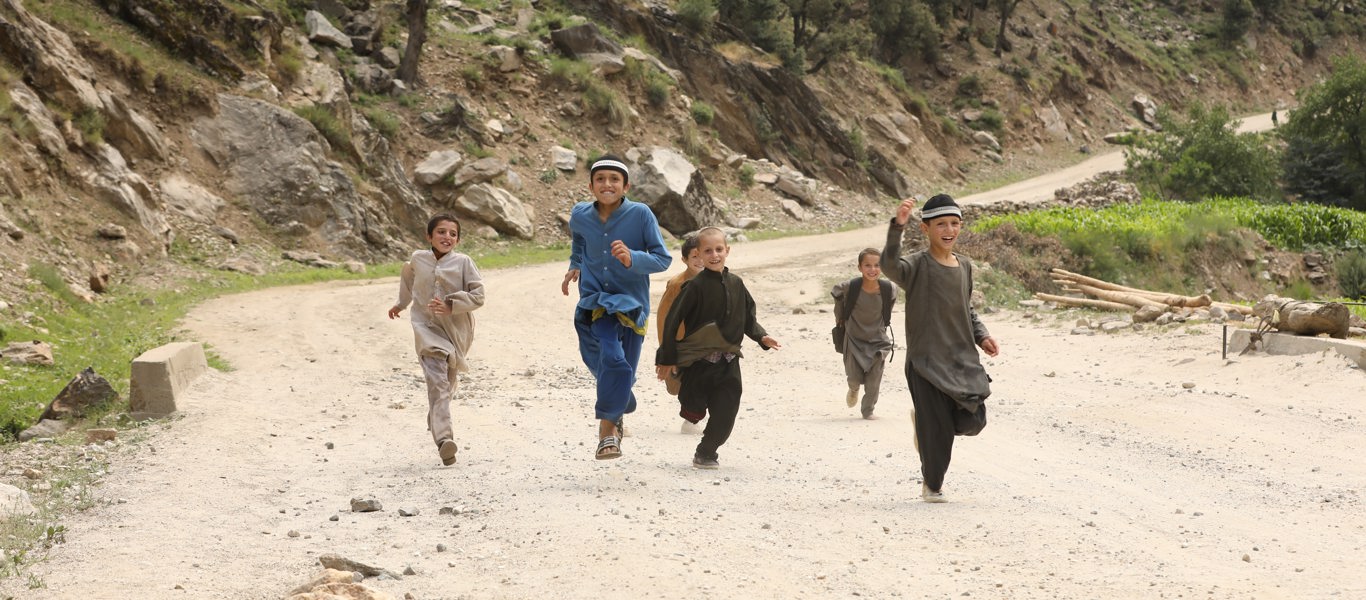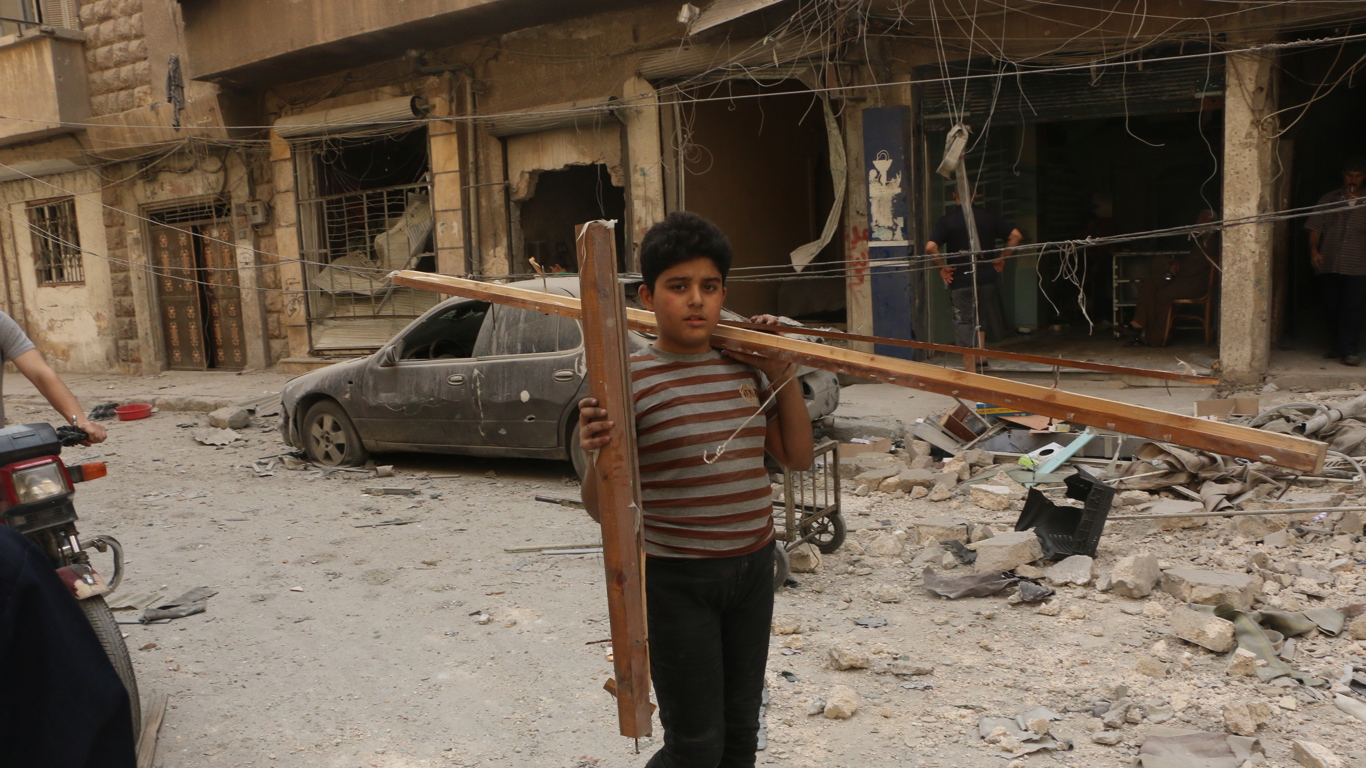
One Year On: Reflections on Afghanistan
One year on from the tragic events that plunged the country deeper into crisis, she shared her thoughts.
Tuesday, August 16, 2022
By Dr Shameela Islam-Zulfiqar
Following her recent visit to Afghanistan, Action For Humanity's Fundraising & Humanitarian Mentorship Lead Dr Shameela Islam-Zulfiqar reflects upon the growing need in the country. One year on from the tragic events that plunged the country deeper into crisis, she shared her thoughts:
Just as quick as the blink of an eye… exactly one year has passed since Western forces pulled out of Afghanistan. The world witnessed terrible scenes at Kabul International Airport; civilians falling from planes in flight or being crushed to death in stampedes or the explosion outside the airport perimeter fence.
No doubt there will be lots of commentary today from international media agencies - mostly on the newly established government, their engagement at leadership level in an international context and the deteriorating situation in the treatment and education of women and girls this past year. While all of this is important, it's imperative not to lose focus on the massive humanitarian crisis that continues to unfold since the exit of foreign boots.
Working in the humanitarian sector full time, and having recently returned from a mission in Afghanistan I witnessed the devastating aftermath of protracted wars, widespread corruption, mismanagement of funding and long-term instability.
According to UNHCR figures - an estimated 3.4 million people are internally displaced. 2 million Afghan refugees 'live' in neighbouring Pakistan and Iran. Many of the refugees who fled a year ago to the UK are still living in limbo - in 'temporary' accommodation; repurposed hotels or hostels - with no end in sight or a return to 'normality' any time soon.
While there is relative calm from the violence in Afghanistan at the moment, many families are teetering on the edge of survival. The Ukrainian-Russian war has had a massive impact globally - on food prices and availability, on import, export processes and ultimately on food security. Less developed countries and those already crippled by decades of conflict have taken the brunt of this impact.
This coupled with the withdrawal last year had a massive negative impact on food security. With much of Afghan assets and national income frozen in international banks, the economy has been crippled, and food insecurity has skyrocketed. The status quo is simply unsustainable.
Displaced and refugee families are forced to make difficult choices. Which children to feed, which to send out to work and sadly - which to sell. Food insecurity is resulting in malnutrition, loss of life and in extreme cases, selling children off for sums of money needed to help the rest of a family survive. It sounds horrific - and unfathomable from our privileged position. However, if the options are between not watching your child starve to death in front of you - or to sell the child to keep it alive, (whatever the consequences of that decision), it's certainly no choice any parent should ever be forced to make.
Needs assessments from many of the villages and camps we travelled to revealed that most displaced families live without even the most basic of necessities for survival let alone having some sort of quality of life. Most have no regular means of food, no clean, running water, wash facilities, no electricity in large parts of the country and few shelters that are fit for purpose.
The humanitarian situation has deteriorated over the last 12 months with rising unemployment, living and food costs, declining incomes and a failing economy with much of Afghanistan falling below the poverty line due to international sanctions and the current government struggling to stabilise the economy. Government salaries are delayed in every public sector.
The key challenges I feel from a humanitarian perspective are:
■ Procuring enough supplies to meet the demand during a time of unprecedented food insecurity for millions of Afghans.
■ Dealing with the ruling authorities and negotiating safe humanitarian corridors is challenging but not impossible. It has been a source of delay in aid distribution when awaiting clearance to supply/support.
■ Transferring funds from international banks and getting the money in time to pay for emergency aid in the country
■ Travelling between major cities to deliver humanitarian aid, across areas littered with landmines left in the aftermath of war.
Livelihood support is necessary - Afghans are a proud people. They want to be able to work and earn their own income in order to survive and support their fledgling economy in the absence of Western powers.
The secondary education system for girls needs to resume as soon as possible with rehabilitation of schools for all young people. Without the education of the next generation; (especially women), the country will always be in a deficit of a workforce that benefits everyone equally.
WASH facilities are dire all over Afghanistan. Hardly any effort has been made to close up open sewers in much of the country. This harbours disease and waterborne infections.
Healthcare is substandard - especially with the brain drain of so many professionals leaving the country last year. Clinics will need support through staff teaching, upskilling and bringing up to international approved basic standards of care.
No matter how dire the situation, all solutions start with the first baby steps. This is a marathon… not a sprint and we are in this for the long run. The need for proactivity and planning is necessary.
AFH has started to build good relationships with field partners, starting with food security projects and WASH facilities.
The next phase will be to provide support for healthcare facilities, to improve morbidity and mortality rates as well as identifying productive Livelihood projects and implementation.
Ultimately… in the absence of support it's ALWAYS the most vulnerable that will either become very ill, malnourished and die - especially the elderly and children. We can stop many more from resigning to this fate - with the right solutions and a clear plan and strategy to improve the living situation for hundreds of families. Thank you for your support so far in bringing positive change to Afghanistan.
Our work in Afghanistan is only possible thanks to your support. Find out more about our Emergency Response.

